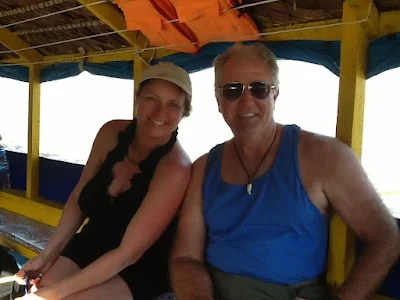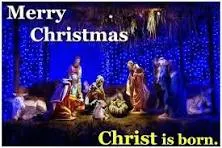When traveling along the lonely stretches of the byways, a person can venture into places they may have planned and perhaps not have planned.
On a hunch, I drove into Elko, Nevada. I was not sure why the trip would be worth it, but as I drove along the main road into this small town in North Eastern Nevada, I realized why the black asphalt road had led me there.
This village seems to beckon the adventurer.
As mentioned in a previous column, my lovely wife, Laureen, wondered why I was traveling to a place we had never heard of.
Perhaps that was enough.
In the Native American Shoshone language, Elko means ‘rocks piled on one another.’ Not sure that is what I saw when driving into the town of nearly 21,000 citizens but maybe I didn’t look out the windows of the truck enough. Though I must admit, driving through Ruby Valley and into the township there were plenty of rocks nestled on top of each other, so perhaps the Shoshone knew something I did not.
The city of Elko, known as the Heart of North Eastern Nevada, is not that far from the Ruby Mountains - in fact, I stared at them a few times while visiting Elko. They are impressive and can be easily seen the mere 20 miles to the east.
Tall, imposing mountains which offer hiking, skiing, hunting and over 20 alpine lakes - high-altitude lakes in a mountainous areas, usually near or above the treeline.
In layman’s terms, lakes that don’t have a lot of trees around them due to the elevation.
The Ruby Mountains are called the Swiss Alps of Nevada.
In fact, on my travels near Elko, I actually met a lovely family by the name of Von Trapp who asked if I wanted to join their singing group. Though my voice is lovely, I had to turn them down and off they went wearing fashionable dirndls for the girls and lederhosen for the boys.
Elko also claims to be the biggest city by virtue of population in nearly 130 miles. That is saying a lot and after asking strangers in the main park if this was true I am not sure.
“Is it the largest city in one hundred and thirty miles?” I asked one man.
“If you say so.”
“But is it?” I leaned into my journalistic atmosphere.
“If you say so,” was the return.
 |
| Elko may be small but they have big boots |
I wandered off to find one of the many breweries in the local area.
The city received its name, per the myth, by Charles Crocker who was a superintendent of the Central Pacific Railroad.
Railroads were big businesses during the conquering of the west and this muck-muck, Crocker decided he would name this new burg after one of his favorite animals, the elk.
But, even Crocker knew that no one would want to say, “I live in Elk,” so he added an ‘o’ and thus Elko was born in the late 1860s.
 |
| Elko was and still is a railroad town |
Elko was a part of the original California Trail - the path to the promised land of high taxes and higher real estate prices.
“I cannot wait to mortgage one of our children for a bungalow in Malibu,” one pioneering father was heard to say.
When the construction of this section of railroad was finished, the engineers and work crews left but the town began to grow and thrive as a hub for ranching, mining, railroad freight, and everything else a growing town needs.
In 1917, Elko was officially incorporated as a city.
There are many interesting things to learn about this Heart of North East Nevada and one of curiosity value is the importance it had with the commercial airmail service. Something called the Kelly Act, which was enacted by congress in 1925, allowed the United States Postal Service to contract out some of its mail service. The first time this act was used was on April 6, 1926 when a commercial plane flew from Pasco, Washington all the way to what one day became the Elko Regional Airport - an amazing distance of 487 miles.
The Kelly Act is much like the newer version, the Jeff Bezos Act.
Stopping by the Northeastern Nevada Museum on Idaho Street - why Idaho Street instead of Nevada Street, I do not know - I saw the original Pony Express Office which had served Ruby Valley and was moved to this location in 1960.
 |
| Pony Express Office outside of museum |
It was perfect, as though someone could rest there while waiting for the next young rider barreling into the area.
While touring the museum, I saw something that brought joy to my heart. Two young mothers escorting their very young children from exhibit to exhibit patiently explaining what each display was showing.
 |
| A whole array of fossils are on display |
Traveling as I do, I visit a lot of museums and sometimes they are crowded and sometimes they are empty, but it always makes me remember the times when Laureen, my lovely wife, and I would take the girls to various museums in the states and abroad.
Such good times.
“Can we leave now,” Erica may say.
Jessica would pipe up with, “There’s just a bunch of old stuff here.”
“I’m hungry,” Kelly would finish the conversation.
Good memories.
One of the women looked over and asked if I was a photographer since I had my Canon Rebel around my neck and had been snapping pictures.
“Laureen wished I was,” I replied.
Turns out both ladies were from Indianapolis. That’s somewhere to the east of Nevada.
Kristina had moved out to Elko nearly a year ago and truly loved the small town.
“It’s so beautiful here,” she told me. “And the people are so friendly.”
Becca, Kristina’s friend, still resided in Indiana. “Kristina told me to come and visit, now I don’t want to leave. No crowds, no crime and the cost of living is so much better.”
It also turns out that Kristina is a professional photographer. I politely smiled when Becca showed me Kristina’s website.
 |
| Photo by Kristina Crews |
I may have to go back to college for some photography lessons.
Bidding adieu, I traversed the museum and marveled at how well everything was structured and the care each individual exhibit received from the staff.
And that is no easy task for anyone to take one with over 20,000 square feet and covering multiple levels.
There are intricate Native American baskets, shoes, weapons, beautiful artwork, and everything else either the Shoshone or Paiute may have needed or desired while living in the nearby locale.
The history of mining - which was so important to the development of Nevada, which is known as the Silver State - is on display with tools of the trade as well as descriptions of how they were utilized.
The history of ranching, which is a major industry that Nevada ranks 3rd in the nation for ranch sizes with the average ranch in Nevada at 3,500 acres. There is exhibit after exhibit explaining the daily routine of ranches with photographs, horse saddles, lariats, and tools of the trade.
 |
| A wonderfully historic Stage coach on display |
Humongous two million year old mastodon bones can be found in the E.L. Wiegand Gallery as well as other fossils of creatures that lived near Elko thousands of years ago like; giant sloths, lions, bison, unicorns, and small native horses.
These ancient but now extinct horses measured seven feet long and four feet tall. Much smaller than the horses we know and love so well now.
“Hey, Pardner,” one ancient cowboy may have said to another. “I like your horse but your feet are dragging the ground.”
One huge room is crammed with stuffed animals. Not like in a baby’s room but more of a big game hunters trophy library.
 |
| Beautiful displays of animals for the visitor to see |
Turns out that most of the animals were donated by the late Jack Wanamaker. He was a conservationist who enjoyed shooting wild animals from all over the world. Over 180 exhibits are in this one room alone and is the largest such collection in the state.
There were lions, tigers, and bears - oh my. I had to go there.
On the second floor are walls filled with paintings by legendary western artists Will James and Edward Borein.
The styles of both artists allow the viewer to really see and feel what life was like in the early days of western life.
In another gallery are dozens of photographs by Ansel Adams and Edward Weston. These are original and many are personally autographed.
There are even watercolors and etchings by Weston, who seemed to have plenty of time to create these gorgeous paintings and renderings when not snapping photographs.
I offered some of my own photographs but was politely told to leave quietly.
This museum is a must stop for any adventurer traveling through northeast Nevada.
For photos by Kristina Crews: www.krccorner.com
.JPG)









